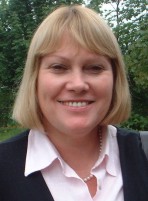
SKIMA - Subject knowledge in Mathematics
Institute of Education, University of London
London
![]()
Researchers: Patti Barber, Caroline Heal and Sarah Martyn
Research question
How does the Mathematics subject knowledge of initial teacher
trainees develop? A study of the subject knowledge enhancement processes
of a group of low scorers in a Mathematics subject knowledge audit.
Subsidiary research questions
- What are the characteristics of this low scoring group?
- How do they perceive the nature of mathematics learning during their teacher training, compared with their learning of other subjects?
- Is 'style of learning' a relevant issue in investigating Mathematics learning for teacher trainees?
The Mathematics subject knowledge enhancement process
- Trainees’ complete Mathematics subject knowledge self-assessment
- Trainees begin self-study process
- Informal peer tutoring
- Formal Mathematics audit
- Identification of highest (top 10%) and lowest (bottom 10%) scoring groups
- Subject knowledge input with each of these groups (different emphasis?)
- Feedback from tutors responsible for subject knowledge input
- One-to-one peer tutoring (highest scorers matched to lowest scorers)
- Peer tutors and peer tutees feedback on aspects of the peer tutoring process
- Follow up to peer tutoring for lowest scorers – discussion and review of Mathematics subject knowledge portfolios
Approaches to data analysis
- Analysis of data from the self assessment audit exercise and from
the formal Mathematics audit
- Analysis of item scores
- Analysis of Feedback sheets
- Analysis of feedback from 'subject knowledge' input tutors
- Analysis of trainees' Mathematics background/qualification
- Analysis of gender and ethnicity
- Interviews with sample of lowest scoring trainees.
Anticipated Outcomes
- Improved support for trainees in their development of subject knowledge
- Greater awareness and early identification of individual needs
- Development of a wider range and more flexible use of learning strategies to meet learning needs.

Patti Barber

Caroline Heal

Sarah Martyn